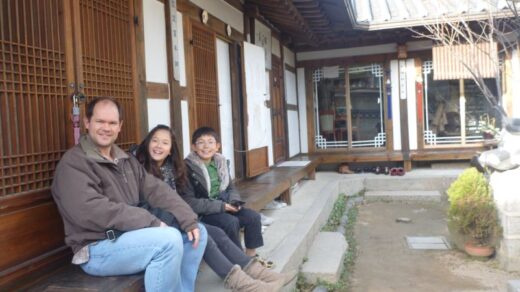—-
On Korea Business Central, we receive a lot of questions about getting a job in Korea. The problem is that the answers aren’t so easy.
- In a posting just a few weeks ago, [EXPIRED LINK REMOVED: https://stevenbammel.com/category/archives/kbcforum/topics/advice-needed] one young professional from Romania asked how she could find a job. She mentioned she’s tried over the Internet but with no success, and that now she getting ready to visit Korea and wants to know how long it will take to find a position.
- In another KBC discussion, [EXPIRED LINK REMOVED: https://stevenbammel.com/category/archives/kbcforum/topics/career-at-korean-branding-creative-industry] a brand manager from Indonesia asked about finding a position in the Korean creative and branding industry and what the basic requirements are to apply to a Korean company.
- I was recently asked by an associate from India with advanced computer and analysis skills/certifications to take a look at his resume and give him some pointers on how to improve his marketability in Korea.
This was my first question to the brand manager and to my associate:
“What sets you radically apart from any of the countless young Korean professionals currently looking for a job in your industry? In other words, what value do you bring to the job that a Korean employer couldn’t hope to fill with a Korean employee who is fluent in Korean, reads/writes English at a decent level, is willing to work evening and weekend hours for a few million won per month and doesn’t need a visa sponsorship?”
Frankly, the answer to this question pretty much determines one’s opportunities in the Korean job market. For thousands of people from (certain) English-speaking countries, the key to a job is “English fluency”. Since most Koreans don’t possess native English skills but there is a huge demand for English instructors, these perennial job openings are the ticket to a position in Korea for thousands of (mainly) Westerners.
There are also many laborers from certain countries of South Asia and Southeast Asia willing to work in “difficult, dangerous and dirty” jobs at rates Koreans won’t touch. They also have an easy time finding a job; but members of KBC aren’t usually looking for these positions, either.
Thus, for someone without the English-skills answer (or at least English-skills from a Western country with an accent in English that Koreans wish to emulate) or interest in working with their hands for a pittance, the solution to the job problem often becomes much harder.
Just being better than the average isn’t good enough. That’s because foreign applicants to positions in Korea do not have access to the “standard” job application processes. The “standard” jobs are available only to Koreans with resumes that match exactly what the hiring company has determined they want. The “standard” application process takes it for granted that the applicant is a Korean who speaks Korean, lives like a Korean and is willing to work like a Korean. There is no option here for foreigners that need a visa, don’t speak Korean perfectly and expect to have their weekends and evenings available for personal time.
After asking the above questions to my associate, he sent me a rather impressive list of qualifications that make him exceptional. But I’m still not confident that’s enough to get him a job easily. Here’s the response I sent him:
“Thanks for the reply.
“The reason I asked you those questions is that, as I’m sure you know, Koreans aren’t going to hire foreigners for a position they think they can fill adequately with a Korean. Any established hiring process in Korea is exclusively for Koreans; foreigners are hired on a case-by-case basis every time and I can’t imagine a Korean company deciding on their own initiative to hire a foreign computer analyst/developer. That means you’re going to have to sell yourself, which won’t be easy.
“Your credentials are exceptional but probably not enough that you can job search from outside Korea. You’ll likely have to do so in-country and with a lot of hustle. I would imagine you’ll have to settle for a job below your desired salary for at least awhile in order to build your local network and move up.
“As for your resume, it looks fine to me. I’d think that at least a cover letter in Korean that highlights the things you mentioned in your email to me yesterday should be included, since even if the person handling the applications reads English, he/she is likely to have to sell your position to superiors in the company who may not be as comfortable in English. Even if they are, the added effort to show the attempt to communicate in Korean can’t be a bad thing.
“Koreans are all about third-party recognition. If you’ve published papers, then those should absolutely be included in your resume. You’ve already done a good job of listing your certifications. I didn’t see anything about your university training though and that should be there. You might even put your photo and age on the resume to match the Korean practice.
“With your background, I’m sure you can find a position if you really want one. I’m surprised how hard it is for many people to land those jobs they want though and you should be prepared for that. You might want to speak with other S. Asians working in Korea to get a perspective on the unique challenges you might face. By way of a contrasting example, Americans often get corralled into English language-related positions even when it’s resisted, and Indians may face other difficulties.
“Good luck; I hope you email me with good news saying you found a better job and faster than I expected.”



